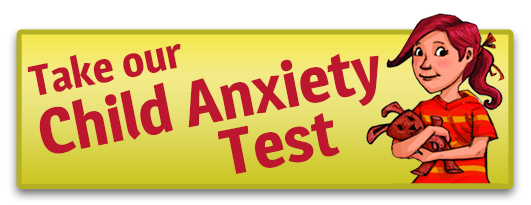“We need to get in the car. It is time for school.”
“Mom, I don’t feel good. I don’t want to go.”
“Jordan, You can’t miss another day of school. Go.”
“Please no, I think I am sick. Just take Alex.”
“You are fine. You don’t have a fever. You are making yourself sick.”
“Mom, make Jordan come, I don’t want to be late.”
“Get in the car now, you heard Alex, it’s not fair.”
Jordan drops to the ground and starts to cry.
“Mom, I knew it, this is ridiculous, why do I have to be punished because of Jordan?”
Ever have a morning like this? If you have a child with an anxiety problem it probably feels at times like your family has been taken hostage. Taking care of your other children becomes both a big concern and more difficult. Here are four areas to address that will help.
Pay Attention to Balancing Attention

For many families there may not be a whole lot of spare time. What you will have to consider is trying to use some strategic time for your other children. You may not be able to match the amount of time but you can balance with the quality of the time spent.
Resist Giving In To Anxiety’s Demands
Families have a tendency to gradually accommodate or give in to the anxiety disorder. If a child is afraid of contamination then family members give in and don’t touch certain things or comply with demands on how to clean things. As a result we all get sneaky and do things “behind the back” of the anxious child. All this is done to prevent another meltdown. This sort of accommodation is normal but it is the wrong direction to go. You have to disobey anxiety to defeat it. That goes for both the anxious person and that person’s family. It is the right thing for not only your anxious child but your other children if you will resist allowing the anxiety to control the household. If you don’t then slowly but surely the other children will gradually start to lose out and they may react with hurt and anger.
If you stop giving in then we know what is coming. I’ve been there. I know exactly what is next. It means there will be meltdowns. It means you will have to figure out how to not get anxious or angry at them. You have probably noticed that just makes it worse. Work on staying calm and gently encouraging. Mostly you will have to wait until the episode runs its course. I have written more about that here. If you aren’t scared of anxiety it will help your child be less afraid.
Keep Consequences Consistent
I have 3 kids and the reality was that we corrected each of them differently. If I fussed (southern word) at my older two they didn’t like it and it could get intense but with my anxious child that set off an anxious conflagration of a whole other level. So we gave in just to prevent that. Well, that isn’t fair by any standard to other siblings. So here is some advice for delivering correction or consequences learned the hard way.
- Say what you have to say in a calm voice (no glaring). Don’t expect or need your child to be persuaded. You’re the boss, you are just conveying the message.
- If there is a meltdown talk LESS, in fact, if everyone is safe, walk away until your child calms down. Biologically the rational brain is not in charge so don’t argue.
- Give consequences for inappropriate behavior, not emotions. For example, don’t penalize for anger, rather for throwing something at the wall. By the way, if there is a meltdown give the consequence afterwards. Your other children will be watching. If you avoid giving consequences to prevent an anxious episode your other children will see this as unfair. Again the key is to not let anxiety dictate how your family functions.
Keep Doing What You Were Doing
When we think something is dangerous we are biologically compelled to escape to survive. So your anxious child will fiercely resist what is feared. At your house it might mean not going somewhere, not talking to someone, not completing chores, not going to bed, etc. It will, with a certainty equivalent to the sun rising, disrupt your family plans. What to do? Do it anyway. Whatever it is, do it anyway. Yep, that means you have to take a crying terrified child into the car and go on that very needed holiday. “When your anxiety is high you are focusing on surviving rather than living.”* You job as a parent is to keep the family going about their lives.
*Drexel University. (2016, December 8). Anxiety measure for children with autism proven reliable. ScienceDaily. Retrieved December 9, 2016 from www.sciencedaily.com/releases/2016/12/161208125847.htm

